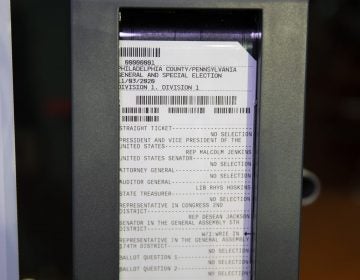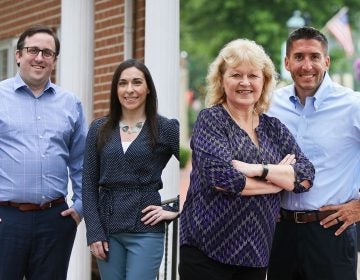Critiquing Kenney: Taking the pulse of Philly mayor’s old neighborhood
Interviews with voters in Kenney’s old neighborhood show a mix of opinions about him, but little support for his Democratic rivals.
Listen 5:32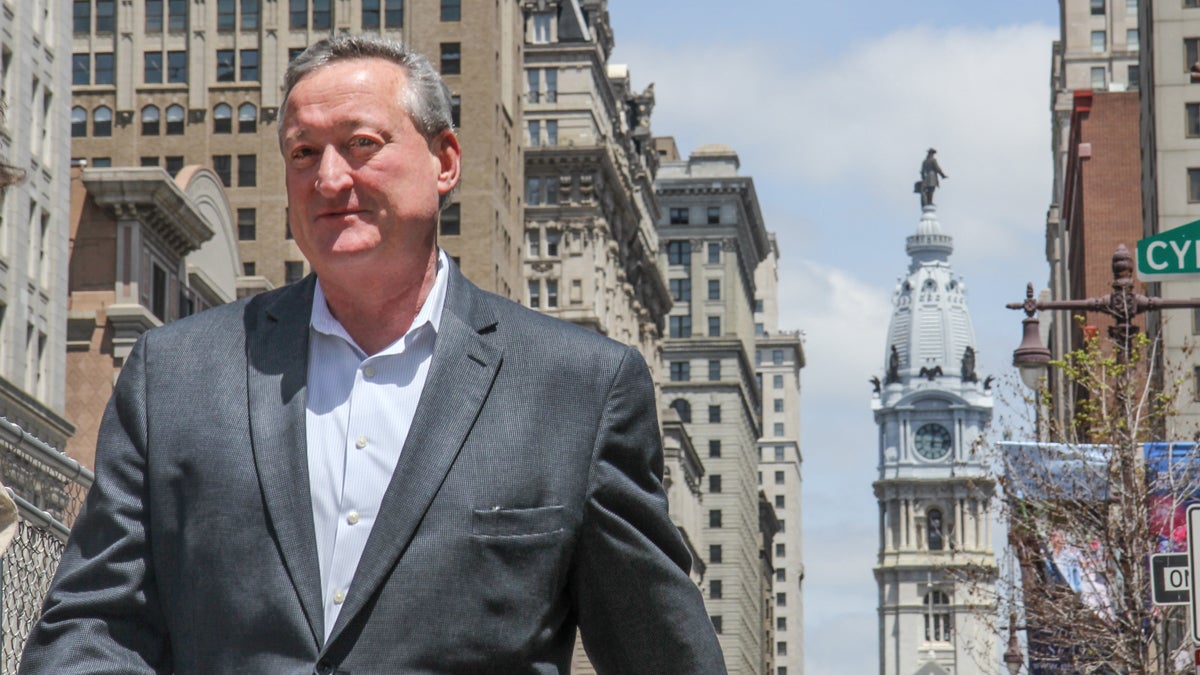
Jim Kenney walks down Broad Street towards the Broad Street Ministry. (Kimberly Paynter/WHYY)
To get a sense of how voters are feeling about Jim Kenney’s four years as mayor, we sent reporters to several neighborhoods, asking residents what’s changed, what hasn’t and how that affects their vote for mayor.
—
Mayor Jim Kenney’s childhood neighborhood around Third and Wolf streets in South Philly is a community of tight, two-story rowhouses. Once solidly white and working class, it’s gradually becoming more diverse.
To find voters more likely to be engaged in political and civic issues, I spoke to people dropping into a town hall hosted by the Whitman Council, a neighborhood group, at a union hall near Fourth and Shunk streets.
“I think he stinks,” said Sarah Ann Daly, an 85-year-old Democratic committeewoman. “I think he’s the worst mayor we ever had, and that’s not only my opinion.”
Daly said she supported Kenney in 2015, in part because he was from nearby Our Lady of Mount Carmel parish. But she’s disillusioned with Kenney now. Asked why, she struggled to explain, finally saying the mayor seems to be for, well, others, not his old neighborhood.
“Certain areas get smoke alarms. Certain areas get fans for nothing, all right?” Daly said. “They get coats, they get smoke alarms, they get fire extinguishers, whatever it is he gives away. It’s only certain areas. I mean what, nobody lives down here?”
Longtime resident Maggie Fields brought up the sweetened beverage tax and questioned where the proceeds really went.
“All the money that was coming from the soda tax that he point-blank said was coming to the schools, [I] had no problem with it,” she said. “Then he came out, `well no, some’s going to the schools, some was going to the general [fund].’ So he lied. I’m done.”
Fields’ reference to soda tax funds going into the city’s general fund would warm the hearts of beverage industry advocates, who’ve raised the point in paid advertising.
It’s true the city could have established a separate fund for the soda tax revenues.
But it’s routine for city tax revenues to stay in the general fund until they’re spent, and parking the soda tax funds there while targeted programs are being ramped up doesn’t mean the money’s been diverted to other uses. And the city purposely did not use too much of the tax dollars while court challenges were still pending.
Laura McColgan, who heads the Friends of the Whitman Library nearby, said she is dismayed at staff cuts and closures in recent years.
“I would like to see a really strong, viable candidate for the mayor’s race this year,” she said. “In good conscience, I can’t vote for Mayor Kenney again.”
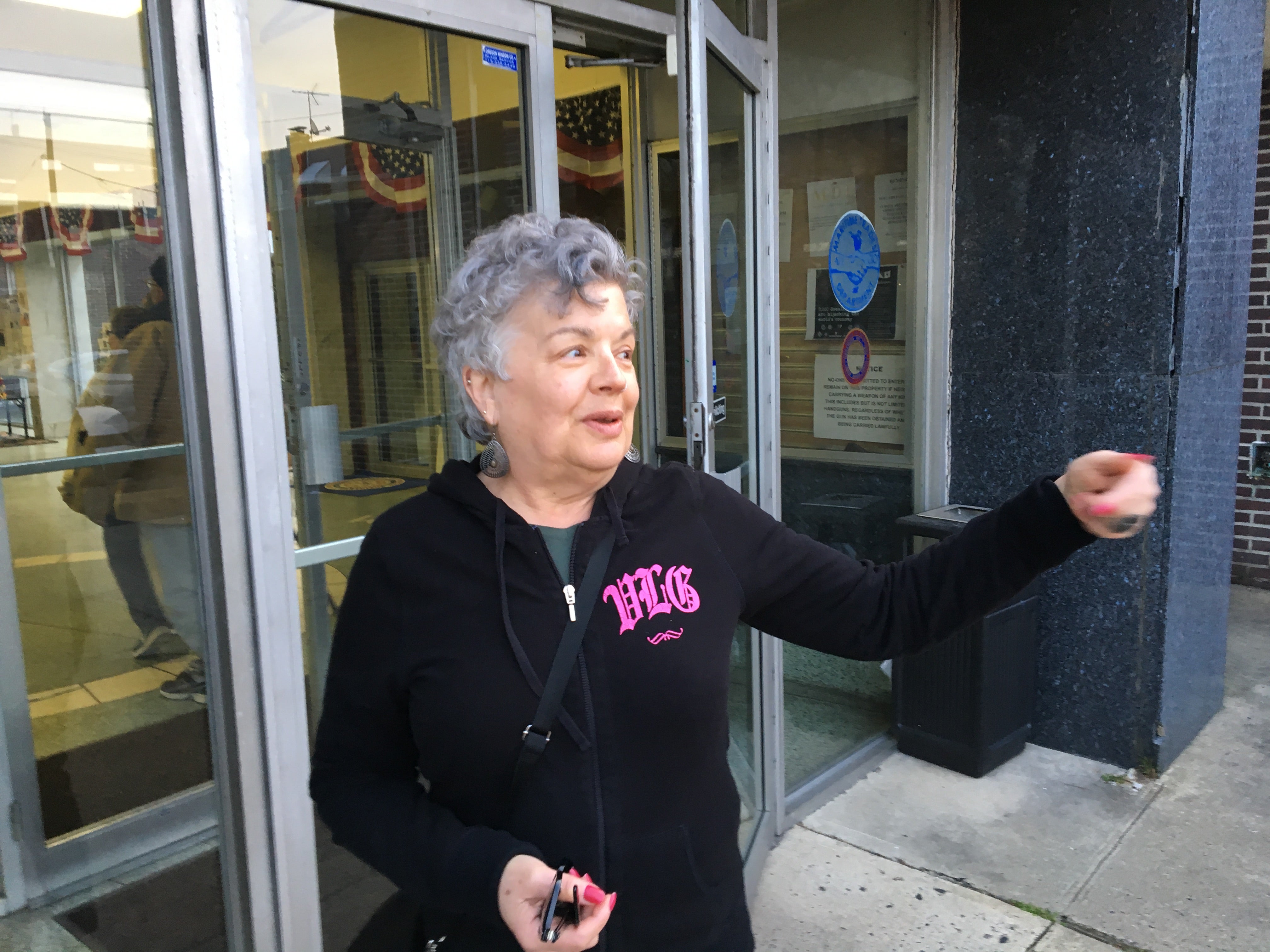
Tina Curtin, a 49-year-old stay-at-home mother, is concerned about addiction in the neighborhood.
“He forgot where he came from,” Curtin said of Kenney. “I think he needs to come back to South Philly’s level and help us out here, especially with the opiate epidemic that’s going on. We’re burying everybody’s kids. It’s disgusting, it’s sickening — the break-ins, the crimes.”
Some support too
But just as many people said they’re ready to give Kenney a second term.
Nacho Perez has lived near Third and Shunk since the 1950s. His was the first Hispanic family in the neighborhood, and there was some resistance. But now it’s home, and he loves it.
“I think the community’s great. We stick together,” he said. “Some people, they see a little thing, they want to make it a big thing, you know what I’m saying? But I personally think we have a good tight neighborhood in the South Philly area.”
And Perez has no complaints about City Hall.
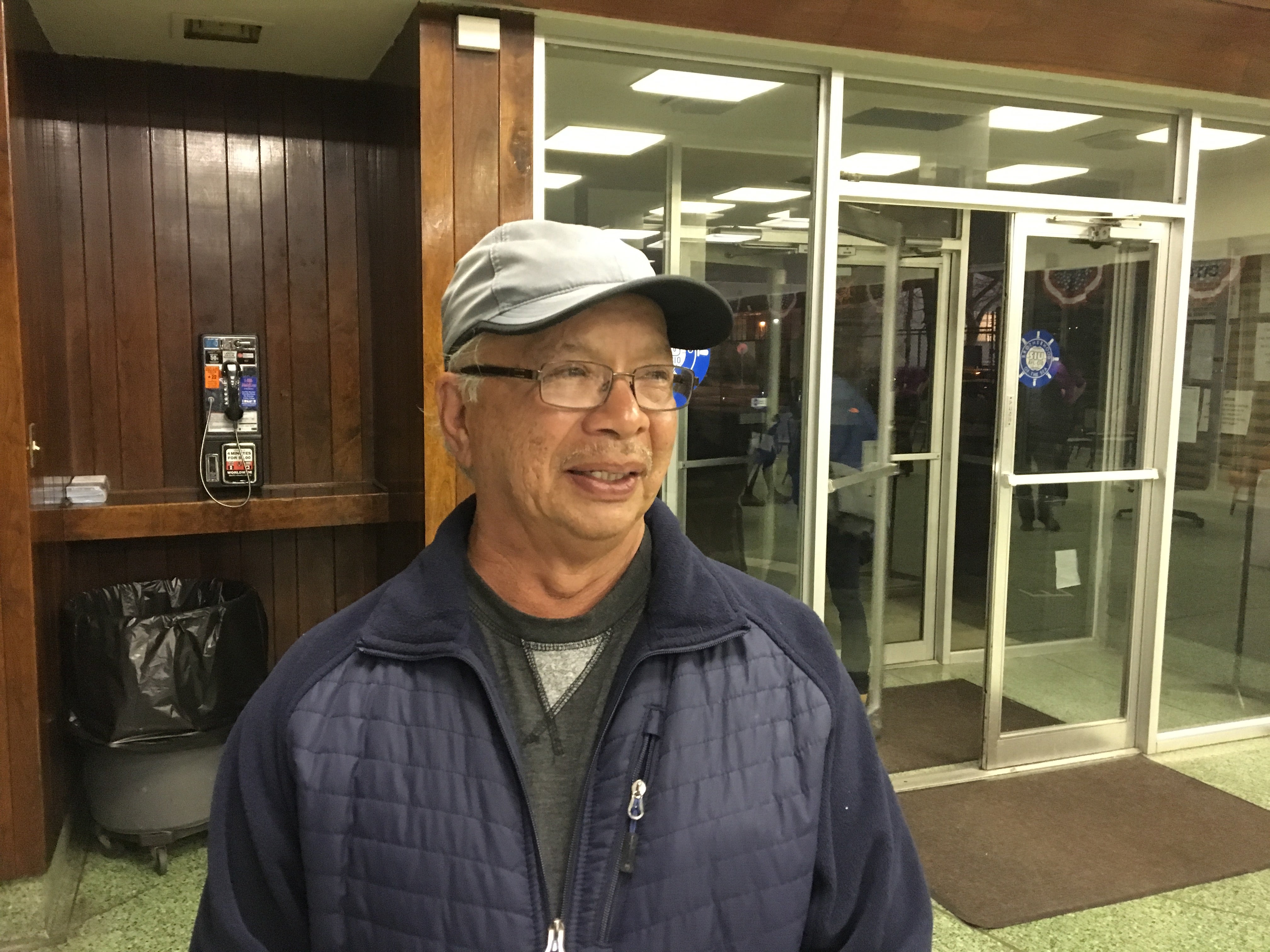
“I think Jim Kenney’s a great mayor. People talk about the soda tax. I think it’s a great thing,” he said. “I’m a diabetic, and I just feel as though we got to get rid of that sugar, so I agree with him on that.”
“He’s going to be fixing up our playground,” Perez added. “You know, he’s doing a lot for us.”
Democratic committeeman Mark Kapczynski agreed. He said some expect special treatment because the mayor comes from the neighborhood.
“He represents the entire city of Philadelphia, not just Whitman or Pennsport,” he said. “I mean he’s done a lot of great things, he really has. Look at the park … he works with the port.”
I shared some of what I’d heard with Kenney. He said he treasures his experiences growing up in the neighborhood and hasn’t forgotten where he came from.
“I have fond memories. I go down there frequently,” Kenney said. “I’m in Chickie’s & Pete’s once or twice a month.”
As for the complaints, he said the beverage industry has spent millions to spread misinformation about the soda tax, and some of that has taken root.
He said staffing will improve in the coming year at neighborhood libraries. And as for the complaint that South Philly is shortchanged while “certain areas” get special treatment, Kenney said “that’s code for people of color.”
“Look, I’m the mayor of the entire city. I’ve evolved and learned that neighborhoods have similar needs but different needs,” Kenney said. “And I still think if you consider yourself a Christian, and consider yourself a person who believes in God and has faith, then you can’t turn your back on poor people.”
The good news for Kenney is that while some in the community don’t support him, the underfunded campaigns of his two opponents — former City Controller Alan Butkovitz and state Sen. Anthony Williams — haven’t managed to connect even with voters who say Kenney’s a bum.
Most voters I spoke to either didn’t know who else was running or didn’t have strong opinions about the other candidates.
More than 90 percent of the neighborhood’s vote went Kenney’s way four years ago, both in the six-candidate Democratic primary and in the general election.
He’ll know how much things have changed in just three weeks. The primary election is May 21.
WHYY is your source for fact-based, in-depth journalism and information. As a nonprofit organization, we rely on financial support from readers like you. Please give today.





